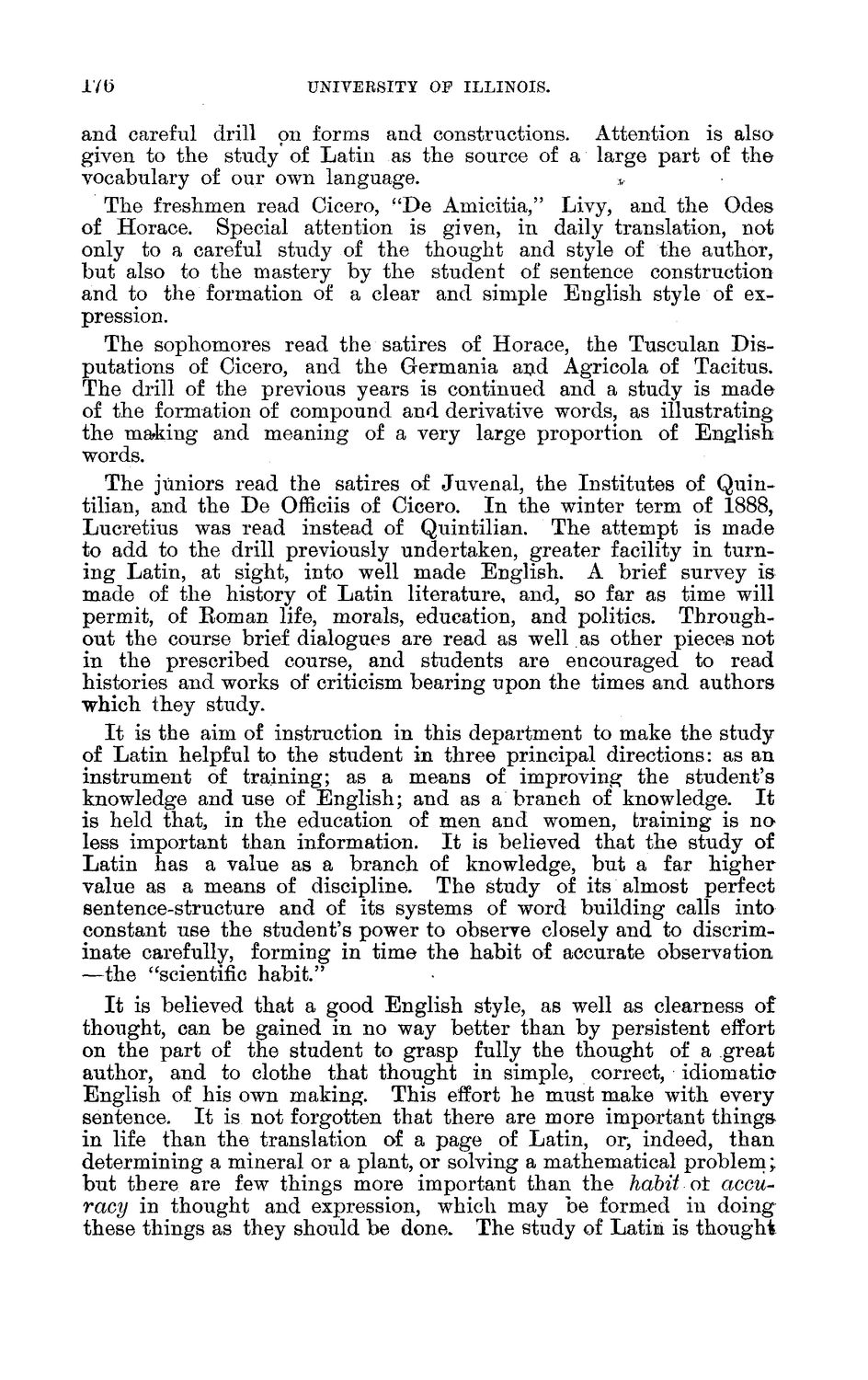| |
| |
Caption: Board of Trustees Minutes - 1888
This is a reduced-resolution page image for fast online browsing.

EXTRACTED TEXT FROM PAGE:
±Y6 UNIVERSITY OF ILLINOIS. and careful drill on forms and constructions. Attention is also given to the study of Latin as the source of a large part of the vocabulary of our own language. > The freshmen read Cicero, "De Amicitia," Livy, and the Odes of Horace. Special attention is given, in daily translation, not only to a careful study of the thought and style of the author, but also to the mastery by the student of sentence construction and to the formation of a clear and simple English style of expression. The sophomores read the satires of Horace, the Tusculan Disputations of Cicero, and the Germania and Agricola of Tacitus. The drill of the previous years is continued and a study is made of the formation of compound and derivative words, as illustrating the ma-king and meaning of a very large proportion of English words. The juniors read the satires of Juvenal, the Institutes of Quintilian, and the De Offieiis of Cicero. In the winter term of 1888, Lucretius was read instead of Quintilian. The attempt is made to add to the drill previously undertaken, greater facility in turning Latin, at sight, into well made English. A brief survey is made of the history of Latin literature, and, so far as time will permit, of Roman life, morals, education, and politics. Throughout the course brief dialogues are read as well as other pieces not in the prescribed course, and students are encouraged to read histories and works of criticism bearing upon the times and authors which they study. I t is the aim of instruction in this department to make the study of Latin helpful to the student in three principal directions: as an instrument of training; as a means of improving the student's knowledge and use of English; and as a branch of knowledge. I t is held that, in the education of men and women, training is n a less important than information. I t is believed that the study of Latin has a value as a branch of knowledge, but a far higher value as a means of discipline. The study of its almost perfect sentence-structure and of its systems of word building calls into constant use the student's power to observe closely and to discriminate carefully, forming in time the habit of accurate observation —the "scientific habit." I t is believed that a good English style, as well as clearness of thought, can be gained in no way better than by persistent effort on the part of the student to grasp fully the thought of a great author, and to clothe that thought in simple, correct, idiomatie English of his own making. This effort he must make with every sentence. I t is not forgotten that there are more important things in life than the translation of a page of Latin, or, indeed, than determining a mineral or a plant, or solving a mathematical problem;, but there are few things more important than the habit ot accuracy in thought and expression, which may be formed in doing these things as they should be done. The study of Latin is thought
| |